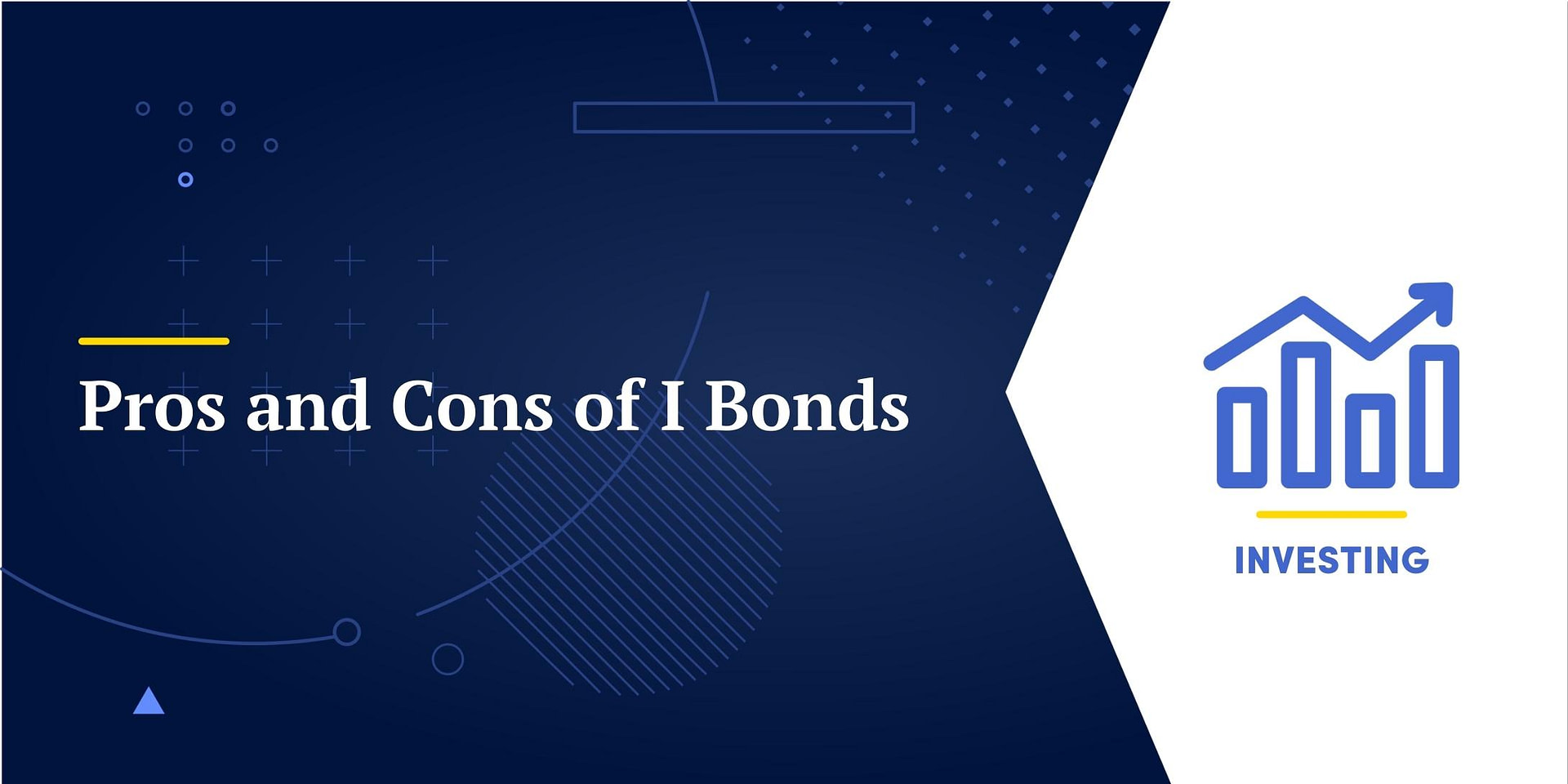I Bonds are a type of United States government savings bond that is designed to help investors keep up with inflation. The interest rate on these bonds is composed of a fixed rate plus an additional rate determined by the inflation rate.
In theory, that means you’ll always keep pace with or beat inflation, making these bonds appealing to bond investors. While there are plenty of advantages to these bonds, it’s also important to consider the drawbacks before you invest.
Pros of I Bonds 
I Bonds offer a variety of perks that make them appealing to investors.
1. Inflation Protection
Perhaps the most appealing aspect of I Bonds is that they serve as a hedge against inflation. This is such a key component of their returns that it became the bond’s namesake.
Every six months, the interest rate of the bond adjusts based on the current inflation rate. As inflation rises, so does the bond’s interest rate. When it falls, the bond’s rate falls too. That means that you can use I Bonds to protect your savings from the impact of inflation, retaining your purchasing power.
2. High Level of Safety
I Bonds are US government bonds which means they’re backed by the full faith and credit of the United States. The United States has one of the highest credit ratings and strongest economies in the world. Its financial systems are a key player in international finance, and the dollar serves as the world’s most popular reserve currency.
The odds of the United States failing to pay its bills are incredibly low. If something does prevent the US from making bond payments, there are likely larger global problems to be worrying about than a missed bond payment.
3. Tax Benefits
Investors get some tax benefits for owning I Bonds. Typically, bond interest gets taxed by state governments and the IRS as a form of income. I Bond interest, however, is exempt from state and local taxes, meaning you only have to pay federal income taxes on the returns.
You can avoid federal taxes as well if you use the bond proceeds to pay for qualified educational expenses. However, to do so, you’ll need to have been 24 or older when buying the bonds, meet income limits, and use the money for yourself, a spouse, or a dependent’s qualified educational costs.
I Bonds also give some control over the timing of paying taxes. You have the option to report each year’s earnings in the year they accrue and pay taxes immediately or to wait and report all of the income when you redeem the bond. If you can plan your income, you can try to book the interest earnings in a year when you’re in a lower tax bracket.
Cons of I Bonds 
I Bonds have many advantages, but they’re not a perfect investment. Before you buy, consider these drawbacks.
1. Penalties and Limits on Early Redemption
There are limits on when you’re allowed to redeem I Bonds and penalties if you redeem the bond too soon after purchasing it.
You are not allowed to redeem an I Bond within one year of buying it. You must wait a full year before you can get your money and any accrued interest out of the bond. If you redeem the bond after holding it for fewer than five years, you’ll pay a penalty equal to three months’ interest.
2. Variable Interest Rate
The interest rate that I Bonds pay is variable. That’s how they manage to adjust for inflation and help you retain your purchasing power, but that can also be a bad thing. If inflation goes down, your bond’s interest rate will also drop, reducing your return on investment.
I Bonds can protect you from increases in inflation but buying them in high-inflation environments can be a recipe for disappointment when inflation starts to ease.
3. Annual Investment Limit
Investors can’t put their entire life savings into I Bonds whenever they want. There are limits on the amount you can invest each year.
Investors are limited to purchasing no more than $10,000 in I Bonds each calendar year. This is more than many people will want to invest in bonds at one time, but for people with higher net worth who want a stable investment, that limit could be frustrating.
Should You Invest in I Bonds?
There’s no universal answer to this question. Your personal investment decisions are based on your needs and your expectations for the future.
Many analysts believe that the recent surge in inflation has peaked and is likely to recede, which would suggest that this is not an ideal time to buy I Bonds.
It is also possible that above-average inflation will continue for some time. If you expect this to happen, I Bonds could be a way to protect the value of your long-term savings, especially if you expect weak performance from alternative investments, like stocks and conventional bonds.
The choice is yours, but you should make that choice with a clear picture of the pros and cons!


